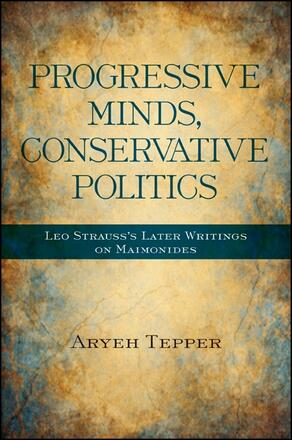
Progressive Minds, Conservative Politics
Leo Strauss's Later Writings on Maimonides
Alternative formats available from:
Compelling account of Strauss's mature Maimonidean writings.
Description
Leo Strauss (1899–1973), one of the preeminent political philosophers of the twentieth century, was an astute interpreter of Maimonides's medieval masterpiece, The Guide of the Perplexed. In Progressive Minds, Conservative Politics, Aryeh Tepper overturns the conventional view of Strauss's interpretation and of Strauss's own mature thought. According to the scholarly consensus, Strauss traced the well-known contradictions in the Guide to the fundamental tension in Maimonides's mind between reason and revelation, going so far as to suggest that while the Jewish philosopher's overt position was religiously pious (i. e., on the side of "Jerusalem"), secretly he was on the side of reason, or "Athens. " In Tepper's analysis, Strauss's judgments emerge as much more complex than this and also more open to revision. In his later writings, Tepper shows, Strauss pointed to contradictions in Maimonides's thought not only between but also within both "Jerusalem" and "Athens. " Moreover, Strauss identified, and identified himself with, an esoteric Maimonidean teaching on progress: progress within the Bible, beyond the Bible, and even beyond the rabbinic sages. Politically a conservative thinker, Strauss, like Maimonides, located man's deepest satisfaction in progressing in the discernment of the truth. In the fullness of his career, Strauss thus pointed to a third way beyond the modern alternatives of conservatism and progressivism.
Aryeh Tepper teaches at Ben-Gurion University of the Negev and is a Visiting Scholar at the Herzl Institute in Jerusalem. His essays and articles have appeared in Jewish Ideas Daily, Jewish Review of Books, Jewish Daily Forward, Jerusalem Post, The Literary Review, Akdamot, and Makor Rishon.